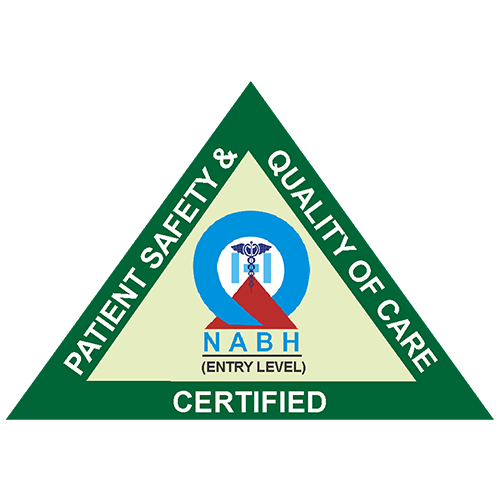Kidney stones are hard, small deposits that can develop in either or both of your kidneys due to a build-up of minerals. Typically, these deposits pass through your urinary tract without causing any problems. However, if a larger stone gets stuck in the ureter (a small tube that connects your bladder and kidney), it can cause excruciating pain. Although kidney stones are usually no larger than a small pebble, they can still be incredibly painful to pass.
As a patient with kidney stones, you might be wondering if surgery is necessary. To help you decide on the best course of action, read the below blog.
Factors to Determine If Kidney Stone Requires Surgery
It’s possible for kidney stones to pass on their own without medical intervention, but in some cases, surgery may be necessary. If you’re wondering whether your kidney stone requires surgery, here are some key factors to consider:
- Size: If the stone is too large to pass on its own, surgery may be needed.
- Location: If the stone becomes lodged in the ureter tube or blocks the flow of urine, surgery may be necessary to remove it.
- Infections: If the stone causes one or more urinary tract infections, surgery may be necessary to prevent further complications.
- Pain: If the pain caused by the kidney stone is unbearable and needs to be alleviated, surgery may be recommended.
In these situations, surgery can help the stone pass and relieve the pain.
When Is Kidney Stone Surgery Not Necessary?
In many cases, kidney stones can be treated without surgery. Treatment options may include:
- Pain Management: Pain medication may be prescribed to help manage the pain associated with kidney stones.
- Drinking Fluids: Drinking plenty of fluids, especially water, can help flush out kidney stones.
- Waiting: In some cases, kidney stones will pass on their own without any treatment. This may take several days or weeks, and may require pain management during this time.
Wondering What Kidney Stone Surgery Involves?
Well, the good news is that most surgeries do not require any major incisions. Urologists can perform procedures using natural orifices, such as the urethra and ureter. This procedure, called ureteroscopy, involves using a small camera to locate the stone. After locating it, the urologist can use a tiny wire basket or laser fiber to remove or break up the stone into small pieces that can be removed.
If the stone is particularly large, extracorporeal shockwave lithotripsy (ESWL) may be an option. This non-invasive procedure involves transmitting ultrasound waves through the patient’s back while they are under anesthesia to break the stone into tiny fragments.
For even larger stones, a more invasive surgery called percutaneous nephrolithotomy (PCNL) may be required. In this procedure, a small incision is made in the patient’s back to insert a scope and remove the stone.
Risks Associated With Kidney Stone Surgery:
Kidney stone surgery is generally safe, but like any surgical procedure, it carries some risks. The risks associated with kidney stone surgery depend on the type of surgery being performed and the overall health of the patient. Some of the common risks associated with kidney stone surgery are:
- Infection: There is a risk of infection associated with any surgical procedure. The risk of infection can be minimized with appropriate use of antibiotics.
- Bleeding: There is a risk of bleeding during or after kidney stone surgery. This risk is higher in patients taking blood-thinning medications.
- Damage to surrounding tissues: During surgery, there is a risk of damage to surrounding tissues and organs, including the kidney itself.
- Pain: Pain is common after kidney stone surgery, especially if the procedure involves making an incision.
- Complications from anesthesia: There is a risk of complications from general anesthesia or sedation, such as breathing difficulties or allergic reactions.
- Stone recurrence: In some cases, the kidney stone may recur even after surgery.
It is important to discuss the risks and benefits of kidney stone surgery with your healthcare provider before deciding to undergo the procedure. Your healthcare provider can help you weigh the risks and benefits and determine whether surgery is the best treatment option for you.
Why Do Kidney Stones Keep Forming?
Most stones are caused by inadequate hydration which leads to the crystallization of minerals in the urine. Other causes include urinary stasis, chronic infections, medications for headaches, migraines, blood pressure, viral infections, or genetic abnormalities that predispose individuals to stone formation.
Can Kidney Stones be Prevented?
Yes, making lifestyle changes such as proper hydration, good nutrition with limited intake of oxalate-containing foods, and monitoring urine collection and analysis to identify factors that predispose to stones can help prevent their formation.
Conclusion
Surgery for the removal of kidney stones may be necessary in some cases, but it is not always required. Many kidney stones can be treated with non-invasive methods, such as drinking fluids, pain management, and medications. If you suspect you have a kidney stone, it is important to speak with your healthcare provider to determine the best course of treatment for your individual case.




